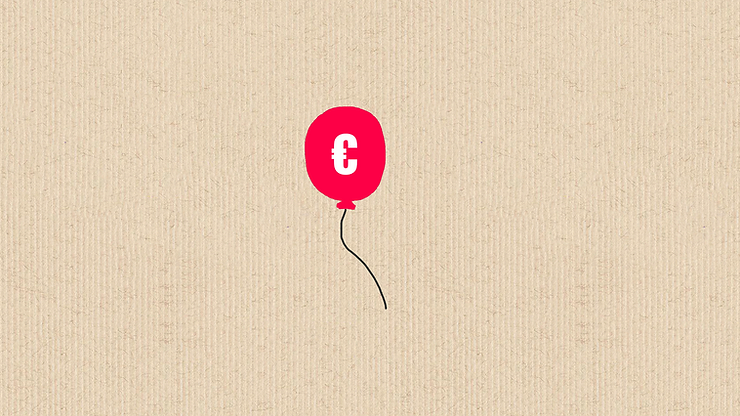After more than 30 years, high inflation is making the news again. We are cooking a video specifically on inflation, but in the meantime, today’s TL;DR explains what central banks and governments can do to counter inflation.
You might already know this but, to buy stuff, you need money. The more money you have, the more stuff you buy. If you are a seller, and you notice people have more money at hand, you would be wise to increase your prices just to get more profit. When this happens on a national, or even global scale, this is what economists call demand-pull inflation – inflation caused by higher demand. And right now, there is a lot of money in people’s hands.
So is the current inflation because people are spending too much?
If you buy two pastizzi instead of one, it won’t make much of a difference. The trillions of Euros spent by governments does, though. However it’s not just that governments and citizens are spending excessively, but stuff is actually more expensive to produce – high shipping costs, supply chain issues, wars etc. – this is cost-push inflation.
So there are two factors for the current record-high inflation
Excessive demand, and costs of production which are too high.
How does the European Central Bank (ECB) reduce excessive demand?
The ECB does this by simply reducing the amount of money in circulation or money supply. The ECB sells government bonds in exchange for cash – investors give their cash away in exchange for these bonds, reducing money supply. Less money supply = less demand = lower inflation.
But the ECB can also increase interest rates, and you might have heard this quite a lot recently, too. You see, money has its price, and that price is the interest you pay to borrow money.
By increasing interest rates, money becomes more expensive, making you less willing to borrow, and therefore there is less money running around.

How do interest rates impact prices?
If you have a loan, you will suddenly find yourself paying more interest on your monthly repayments. Now, you have less money left in your pocket. In turn, you will cut back on your spending. Sellers will respond by reducing prices to try and clear their shelves – this is how inflation is reverted.
So does the ECB try to solve inflation by making people poorer?
Well, not really. When (hyper)inflation goes out of control, things get really bad. It’s like a hidden tax, if you will. Your savings lose value by the day and you suddenly find yourself unable to buy anything. By limiting how much people spend in the short run, larger disasters in the long run are avoided, making you overall wealthier.
But what about higher costs?
To bring costs down, governments undertake large scale supply-side policies such as:
- More flexible energy policies
- Reducing transport bottlenecks by, for example, enlarging ports
- Limiting the power of large corporations to shift costs onto buyers
The goal is basically to make the supply of stuff more cost-efficient. By now, you should have realised that governments and central banks need to cooperate to tackle the current inflationary situation.
The war in Ukraine is impacting food and energy prices. China is still in lockdown – that is where a lot of stuff is made. Moving stuff across the world is also slower with clogged up shipping lanes. Everything is getting much more difficult and expensive to produce. It all depends on how much economies regain their pre-pandemic production efficiency.
In fact, economists are fearing a period of high inflation, high unemployment and low economic growth – or stagflation.
Abnormally high inflation is bad news for businesses. People will spend less, and products are more expensive to produce. Making a profit will be much more difficult. And it is reasonable that workers will ask for higher wages to keep up with the higher cost of living – an employer may have no other option but to lay off some people.
Like it or not, we got used to a well-oiled capitalist economy. We sure hope the situation stabilises itself in the near future. In the meantime, we hope this post has helped you appreciate the interlinking of how an economy works and what to expect from policy makers.

Leave a Reply